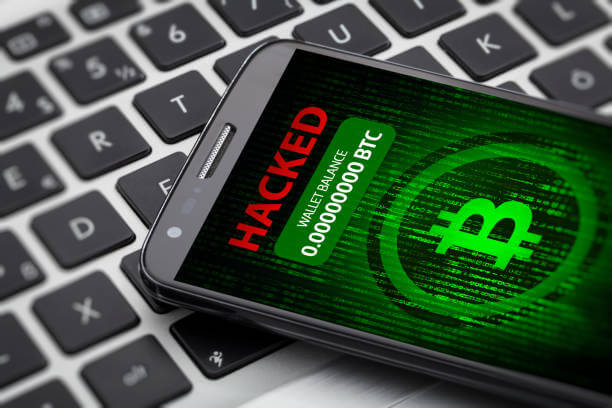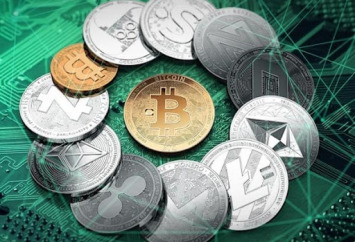Are you intrigued by the prospect of cryptocurrencies but concerned about the risks involved? Well, it’s not just you, but a lot of cryptonauts as well. The more people utilize cryptocurrency, the more opportunities hackers have to scam unsuspecting users. The internet is rife with crypto crime, from phishing schemes to ransomware assaults, so it’s essential to be cautious. This essay, however, will provide some helpful advice for maintaining your privacy and security in the crypto space.
Definition of crypto crimes
Any unlawful activity or fraudulent operation involving cryptocurrency usage is known as a crypto crime. Hacking a cryptocurrency exchange or wallet falls under this category, as does utilize cryptocurrencies for money laundering and scamming cryptocurrency investors and traders. As Bitcoin has risen in value, so has the number of related crimes. Individuals and organizations must be aware of the dangers posed by cybercrime and take precautions to avoid falling victim to it.
Different types of crypto crimes
Individuals and corporations must be aware of the many forms of crypto crime. Some of the most typical forms of crypto crime include the following:
- Phishing Scams – fraudulent operations in which cyber criminals pose as reputable cryptocurrency exchanges or wallets through fake websites, emails, or social media accounts. They use social engineering to get their victims to provide sensitive information, like passwords, that may be used to access their accounts and steal Bitcoin.
- Ransomware attacks – attacks using malware to encrypt a victim’s data and hold it hostage, until a cryptocurrency ransom is paid. Tesler App is an example of a cryptocurrency exchange that have been hacked. For hackers’ benefit, cryptocurrencies may be stolen or their transactions manipulated.
- Ponzi schemes – fraudulent investment schemes where the perpetrators promise significant returns on investment but utilize the money from new investors to pay off the original set of investors, creating a never-ending cycle of deceit.
- Laundering – refers to hiding the true destination or source of illegally obtained monies.
- In pump-and-dump operations, criminals artificially increase the price of a cryptocurrency via promotion and then dump their holdings at a profit, leaving other investors carrying the bag.
- Scam Initial Coin Offerings (ICOs) are ICOs that promise significant returns on investment but don’t deliver.
Protecting yourself from crypto crimes
Now that we’ve covered the many forms of crypto crime, it’s time to talk about how to keep yourself safe. You can protect your Bitcoin holdings by taking a few simple precautions. Here, we’ll review basic strategies for protecting your data from hackers and other cybercriminals.
Using two-factor authentication
Your Bitcoin exchange or wallet account is even more protected with two-factor authentication. You must also input a unique code or biometric data and your login and password. Hackers will be more challenged at breaking into your account. Most Bitcoin services, including wallets and exchanges, require two-factor verification. Coinbase, one of the largest cryptocurrency exchanges, supports two-factor authentication using a standard mobile phone’s SMS or Google Authenticator app.
Keeping your private keys safe
You can’t access or spend your Bitcoin without a private key. You must keep them safe and don’t let anybody else see them. Furthermore, you may avoid online prying eyes by keeping your private keys in a hardware or paper wallet. It’s crucial to print out your private keys and place them securely to use a paper wallet.
Making use of a physical wallet
Hardware (also called cold) wallets like Trezor or Ledger are more secure compared to online ones, as they maintain your private keys offline. Investing in them is a smart move if you own a lot of digital currency. Depending on the manufacturer and functionality, the price may range from $50 to $200, but make sure you’re shopping at a reputable place.
Preventing phishing attacks
Criminals often use phishing schemes to make off with cryptocurrencies. Avoid providing personal information by responding to unsolicited emails, texts, or social media postings. Before entering any personal information, take caution to verify the website’s URL to be sure you’re on an accurate site. To be sure an email came from your Bitcoin exchange or wallet provider, you should always double-check the sender’s address.
Maintaining current software versions
Updating your Bitcoin exchange or wallet software is crucial for its safety. It is common practice for developers to deliver updates that fix bugs and patch security flaws. As these patches become available, be careful to get and apply them immediately. Check the MyEtherWallet website often for software updates and install them as soon as possible, if you use this online wallet to store your ETH.
Refraining from using free public Wi-Fi
The security of public Wi-Fi networks could be better, making them vulnerable to intrusion. You should not use a public Wi-Fi connection to keep your cryptocurrency exchange and wallet accounts secure. Instead, utilize a safe, private network at home or on your mobile device.
Investigating new cryptocurrencies before investing
Do your homework to verify the legitimacy of a cryptocurrency before putting money into it. Before spending money, research by reading testimonials, news stories, and other authoritative sources. Never put your money into a cryptocurrency that promises you huge returns but about which you know very little. For instance, in 2018, it became public that the cryptocurrency BitConnect was a Ponzi scam, causing investors to lose a lot of money.
What to do if you become a victim of crypto crimes
You may take the following measures if you fall prey to crypto-crime:
- Do a quick password reset. You should immediately change the passwords for accounts that share a password with your Bitcoin exchange or wallet.
- Feel free to notify the proper authorities. Contact the police and file a report. One should provide details such as the time, date, and quantity of bitcoin taken.
- Send a message to your Bitcoin wallet or exchange provider. Report the event to the service provider of your Bitcoin exchange or wallet. They can aid you in getting your stolen money back or in some other manner.
- See what’s on your credit report. Ensure no one has taken out a loan or credit card in your name without checking your credit record. Report any unusual or fraudulent behavior directly to the credit reporting agency.
- Remember that criminals may try to contact you again and that you should always be on guard against this. Be suspicious of anybody asking for personal information or money by unsolicited email, message, or social media posts.
Conclusion
Users and merchants of cryptocurrency aren’t immune to the risk posed by crypto crimes. However, you may considerably lower the danger of falling victim to these crimes by taking the necessary actions to protect yourself. Password-protect your accounts, turn on two-factor authentication, update your software, and keep an eye out for scammers. If your cryptocurrency is stolen, you should immediately change your passwords, notify the police and your cryptocurrency exchange or wallet provider, freeze your accounts, and check your credit record for unauthorized charges. If you take these precautions, you will be better able to shield yourself and your assets from the risks posed by crypto-crime.


